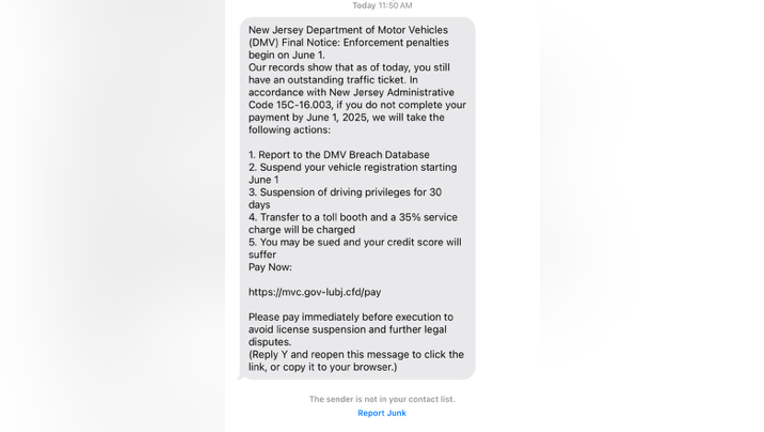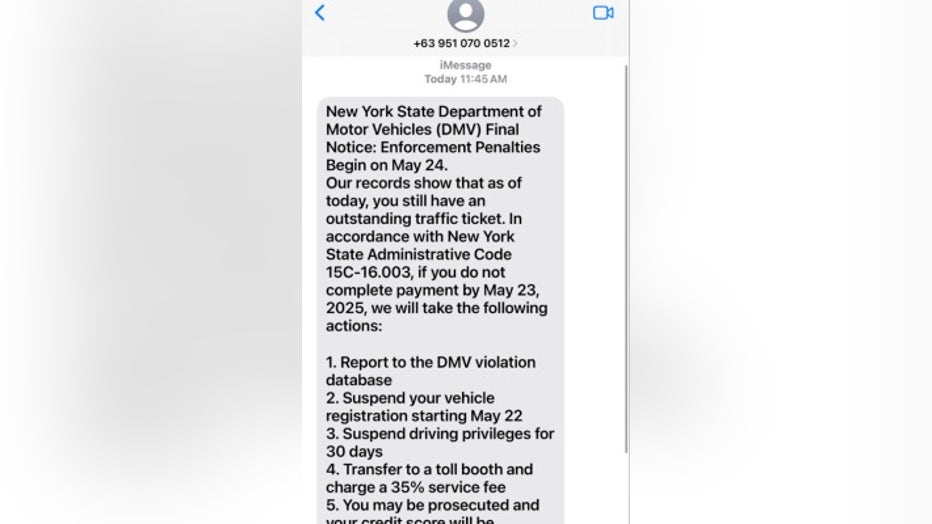Fake DMV texts are scamming residents in NJ, NY: How to avoid them

NEW YORK - People in the Tri-State Area are urged to stay alert as a wave of scam texts pretending to come from the Department of Motor Vehicles spreads.
This is the latest in a series of text message phishing schemes that DMV has warned New Yorkers to avoid.
Previous scams have claimed that E-ZPass accounts were about to be suspended.

What we know:
According to Check Point, a global cyber security company, the scam is part of a broader, coordinated phishing campaign targeting drivers across multiple states.
What it says:
The messages warn drivers of unpaid fees for traffic violations and threaten steep penalties, including additional fines and suspension of driving privileges if the reader does not comply. But these texts are not from any official body.
Check Point researchers traced the attack to hundreds of fake websites designed to mimic official DMV portals in New York, New Jersey, Pennsylvania, Georgia, Florida, California, and Illinois.
The scam texts usually claim a license is about to be suspended or a renewal deadline has passed.
A link in the message takes users to a site where they are asked to input personal details, often including driver’s license numbers, Social Security numbers, and credit card information.
So far, the FBI has not released a specific warning tied to this campaign, though it has previously flagged government impersonation scams as a growing threat.
Here’s a sharper, more reader-friendly version of your "How to protect yourself" section — concise, clear, and with stronger callouts for action:
How to protect yourself from fake DMV texts
According to the New York State Department of Information Technology Services, people should treat any unsolicited message with caution, especially ones posing as trusted agencies.
Avoid clicking unknown links, don’t email sensitive info, and always check the URL before sharing anything.
- Do not click links in texts claiming to be from the DMV.
- Visit the official site (dmv.ny.gov) to verify any notices.
- Watch for red flags like urgent language, unfamiliar links, and spelling errors.
- Never share personal info by text or email. Legit agencies won’t ask for it.
- Report scam texts to your state DMV and at reportfraud.ftc.gov.
- Limit what you post online. The less criminals know, the less they can use.
- When in doubt, don’t click. Always double-check suspicious messages.

